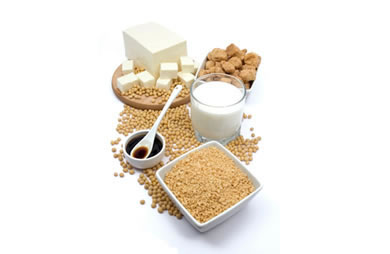|
When I became a vegetarian, I could have probably counted the number of fruits and vegetables that had crossed my lips the previous 18 years on two hands. But things are different these days, and veggies are the highlight of my lunches and dinners. But it wasn't always that way. Like most people, I hated all things green and healthy. I get questions about this a lot—people calling themselves picky eaters, saying they don't like a single vegetable out there. Take it from a person who was just like you. You CAN learn to like vegetables. And beyond that, you CAN meet your daily quota in a variety of tasty ways. Here are 8 techniques and tips I used to like vegetables. Try them yourself—you just might be surprised. Say no to plain vegetables. One of the main reasons people don't like vegetables is because they try to eat them plain. If you're new to eating healthy, this is one of the worst things you can do! Most people don't have the taste buds for a plate of steamed broccoli or spinach. And why should you have to suffer through that for the sake of your health? The thing I did most when I started eating healthier was put vegetables into things I already ate: broccoli mixed in with macaroni and cheese, chopped carrots mixed in with seasoned rice mixes, and frozen spinach added to a can of soup are just a few examples. This is a great way to introduce veggies into your diet, where the flavors of the other foods you eat them with help them taste better and less noticeable. Start by adding small amounts of veggies to your standard meals, and as your taste buds adapt, you can add more and more. Mix your food. If you're one of those people who neatly puts your food into distinct piles on a plate, never mixing them up, then you might hate this idea. I'm not one of those non-food-mixers myself. Most of my meals get mixed up into one big jumble, and while it doesn't look pretty, it sure tastes good. This is similar to the tip above, incorporating veggies into dishes you already eat. But sometimes you can't just add a helping of peas to, say, a turkey burger. But served as a side, you can mix bits of veggies on your plate with the other main dishes—to add flavor and mask the taste if you don't like it. Add some flavor. When cooking vegetables, it usually takes just a little bit of flavor to make them more appetizing. I'm not a fan of plain vegetables either. I don't think many people are. But you can add flavor (and nutrition) to raw veggies with healthy dips like hummus (great with carrots, celery, sliced peppers, cucumbers and more) or your favorite salad dressing (yep, it works for things other than salads). When cooking vegetables, most taste great with just a little salt, pepper and garlic. But I find that sautéed onions and garlic make just about anything taste good, so I often cook those first and then add some vegetables to the mix, which brings me to my next point. Learn how to cook! I've had to teach myself how to cook as an adult. I come from a family of…whatever word exists to describe the opposite of a chef. Cooking has become quite a hobby for me and it's surprisingly fun, relaxing, entertaining and interesting. So how'd I learn to cook? Mostly by trial and error. But I can't take all the credit. I read books and magazines and would call my cooking friends to ask how to prepare a random vegetable that I bought at the store. Little by little, you'll pick up knowledge and learn how to make food taste (and look) great. Even if it doesn't come out perfectly, you'll still learn what NOT to do, and that's a step in the right direction. Try, try again. Most of you are probably parents who have to deal with picky eaters on a regular basis. What most feeding experts will tell you is that a child has to try a food several different times before they might being to like it. What's true for kids is the same for adults. There are foods that I swear I hated my entire life that now, I really like. I just kept trying them in new ways, in different combinations, etc. I used to think I hated strawberries because I had never had a strawberry that I ever liked. But a couple years ago, I was on a mission to find that perfect strawberry, because I just knew I'd like it if I just found a good one. And what do you know—I did. And in the process I learned that, to me, organic tastes best. And so does freshly picked berries in summer (when they're at the peak of freshness and flavor), so I only eat them then. I also learned what color they should be to taste perfect. This is just one example of how you can't write off a food, especially if it's been a very long time since you last tried it. Learn the seasons. Seasonal food is fresher, healthier, and all around better tasting. Strawberries in winter and pumpkin in summer doesn't make much sense, even if you find it in the grocery. Go to your farmer's market and talk to the growers of all things green. They'll tell you what's good and how to eat it too. Look for veggie-packed dishes when dining out. Restaurants sure know how to make anything taste good, and that applies to vegetables too. Think outside the box. Order a vegetable side dish or a vegetarian meal instead of your usual meal. I learned that even though it looks weird and kinda gross, I sort of like eggplant sandwiches. I haven't learned how to make them on my own yet, but a local restaurant sure does a good job, so I'm leaving it to them. Do some reading. I recommend the following resources to help you love veggies a little more.
Are you a picky eater when it comes to vegetables? How do you make them more palatable? Share your insights in the comments below! |
Popular EntriesRelated Entries
More From SparkPeople
|




.jpg)


















.png)